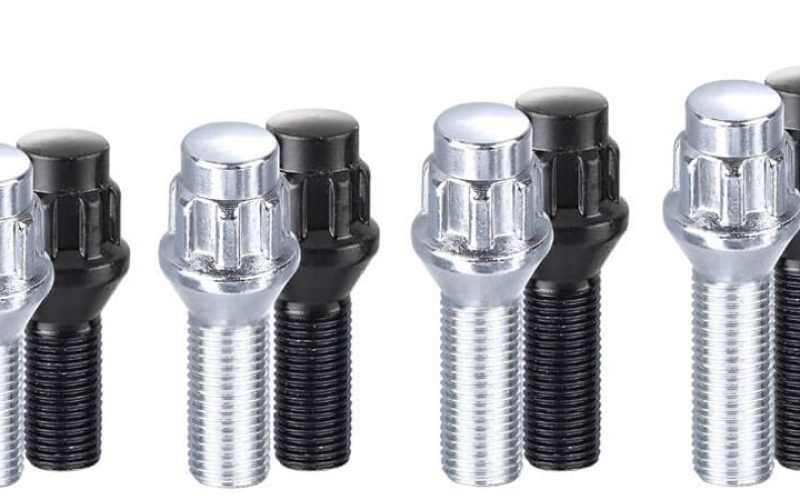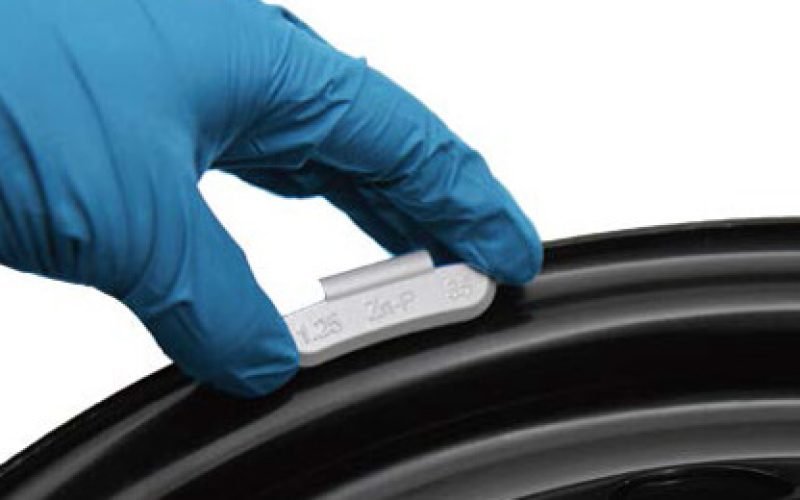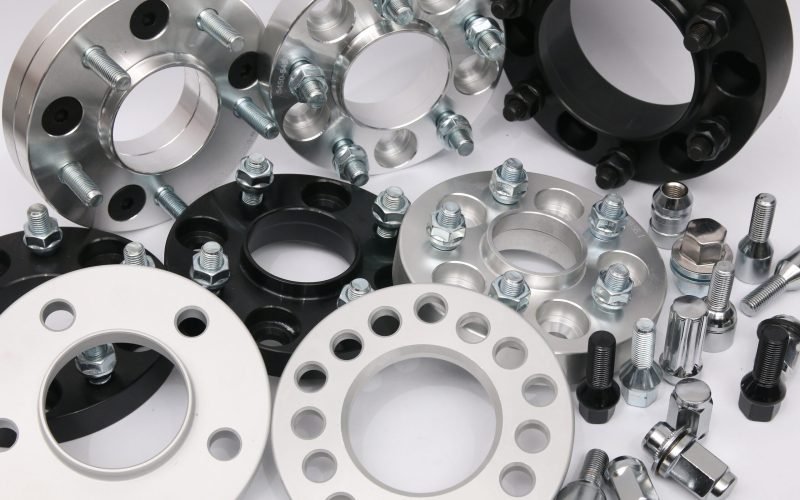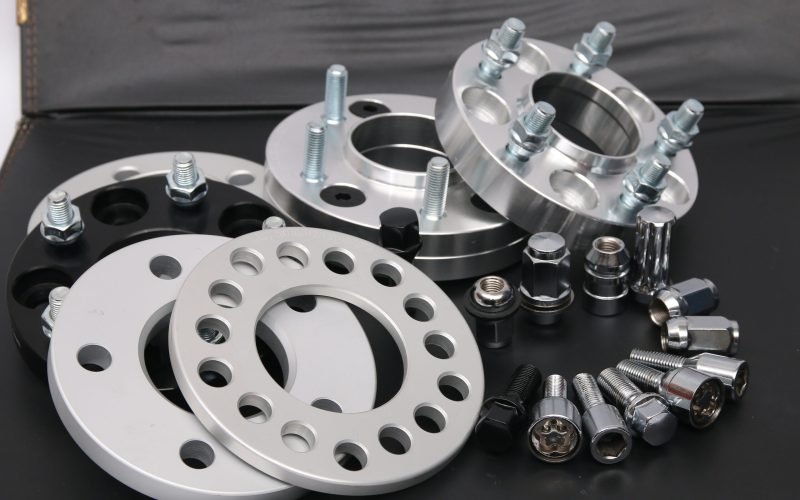

admin1
May 19, 2025
How Alloy Wheel Weights Protect Your Vehicle’s Suspension
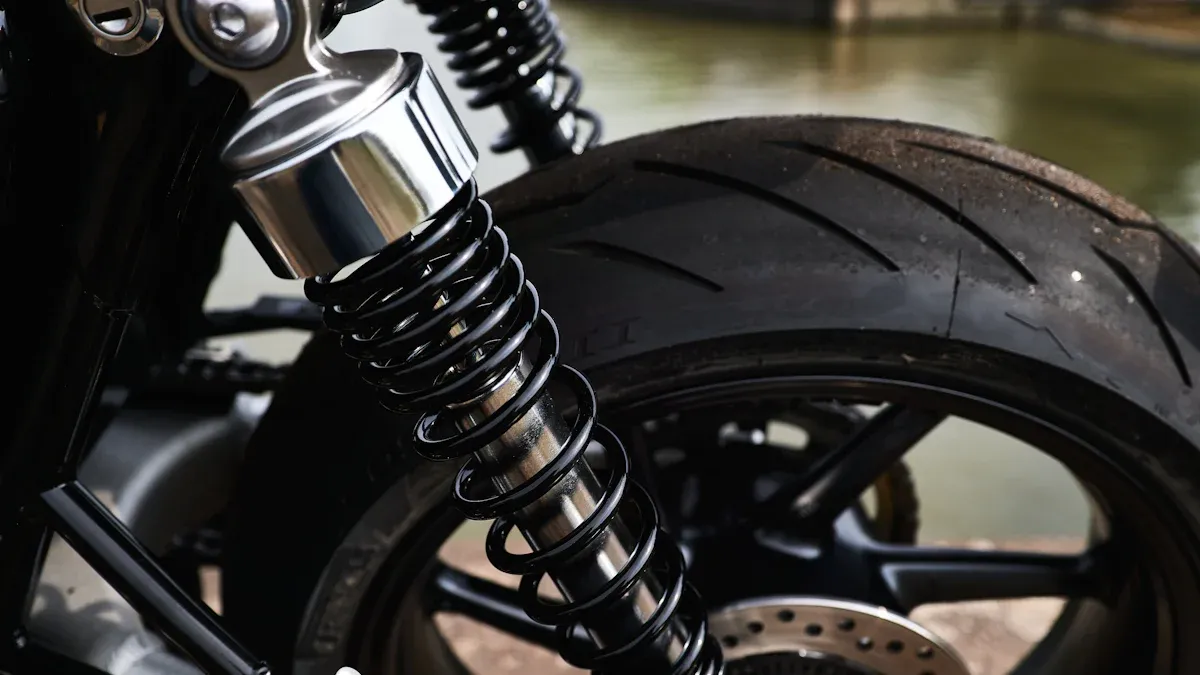
Alloy wheel weights play a critical role in maintaining wheel balance, helping you avoid unnecessary strain on your vehicle’s suspension. Balanced wheels reduce vibrations, which leads to smoother rides and less wear on suspension components. This also improves vehicle performance in measurable ways: properly balanced wheels can boost fuel economy by 1% to 2% and extend tire life when rebalanced midway through their wear cycle. By ensuring your wheels remain balanced, you protect essential systems while enjoying a more comfortable and efficient driving experience.
Understanding Alloy Wheel Weights
What Are Alloy Wheel Weights?
Alloy wheel weights are small components designed to correct imbalances in your vehicle’s wheels. These weights are typically made from durable materials like zinc or steel and are attached to the wheel rim. Their primary purpose is to ensure precise tire balancing, which is essential for smooth driving and maintaining the health of your vehicle’s suspension system.
There are different types of wheel weights available, including clip-on and stick-on wheel weights. Stick-on wheel weights are particularly popular for modern vehicles due to their versatility and ability to adhere securely to alloy rims without causing damage. By using these weights, you can achieve optimal tire balance and reduce the risk of uneven tire wear.
Why Alloy Wheel Weights Are Ideal for Modern Vehicles
Modern vehicle designs demand advanced solutions for maintaining performance and safety. Alloy wheel weights meet these demands by offering lightweight, durable, and efficient options for balancing wheels. Stick-on wheel weights, in particular, are ideal for modern vehicles because they provide precise weight distribution without compromising the aesthetic appeal of alloy wheels.
A closer look at performance metrics highlights why these weights are so effective:
| Metric | Description |
|---|---|
| Tire Balance | Stick-on wheel weights provide precise weight distribution, crucial for smooth rides and handling. |
| Fuel Efficiency | Properly balanced tires reduce energy consumption, leading to better fuel efficiency. |
| Safety | Balanced tires maintain traction, especially in adverse conditions, enhancing overall safety. |
Additionally, regulatory changes and consumer preferences have increased the demand for alloy wheel weights. Over 70% of consumers prioritize safety features when modifying vehicles, making these weights a preferred choice for modern drivers.
The Role of Wheel Weights in Achieving Balance
Wheel weights play a critical role in achieving and maintaining balance in your vehicle’s wheels. When a wheel is out of balance, it creates uneven centrifugal force during rotation. This imbalance can lead to vibrations, reduced traction, and premature wear on tires and suspension components. Stick-on wheel weights counteract these forces by redistributing weight evenly across the wheel assembly.
By ensuring improved tire balance, these weights enhance your driving experience and protect your vehicle’s critical systems. Over time, maintaining proper wheel balance with alloy wheel weights can save you money on repairs and extend the lifespan of your tires and suspension.
The Connection Between Wheel Balance and Suspension Protection
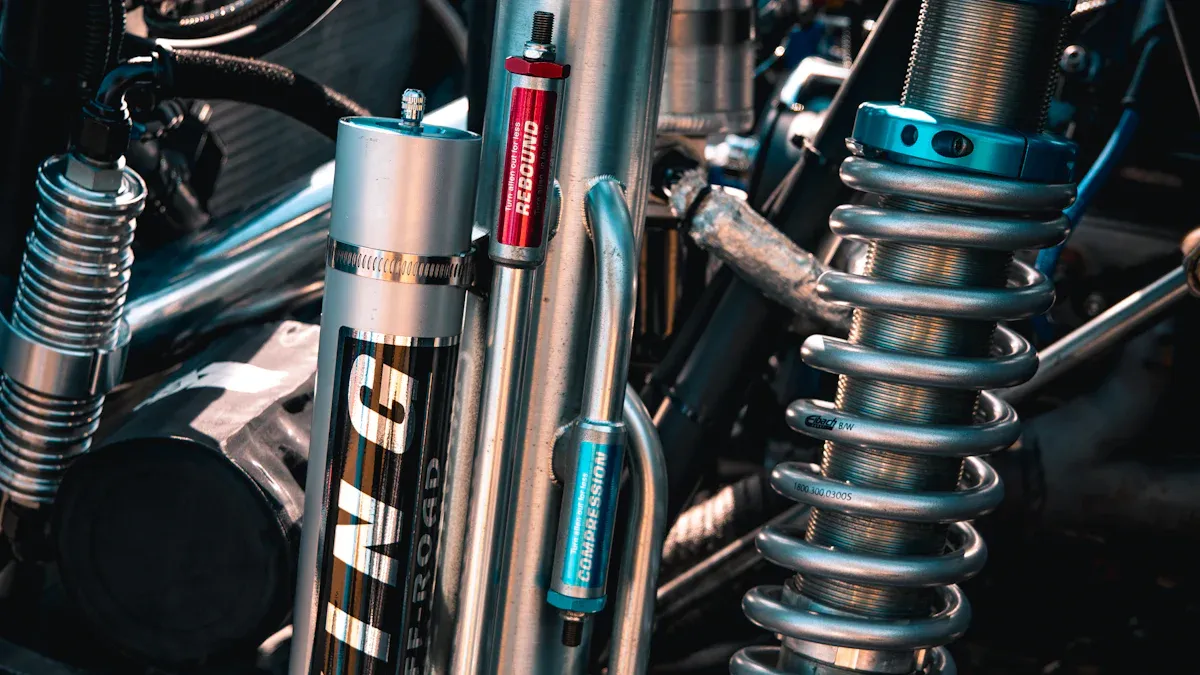
How Imbalanced Wheels Stress the Suspension
Imbalanced wheels create uneven forces as they rotate, which can significantly stress your vehicle’s suspension system. When a wheel is out of balance, it generates vibrations that travel through the suspension components. These vibrations force the suspension to work harder to maintain stability, leading to premature wear and tear. Over time, this can result in costly repairs or even failure of critical parts like shocks and struts.
Research highlights the importance of maintaining proper wheel balance. For example:
- Independent suspension systems improve dynamic responses and reduce vibrations compared to non-suspended systems.
- Balanced wheels distribute pressure more evenly, ensuring the suspension maintains a trajectory closer to the theoretical path under load.
- Reduced vibrations protect the suspension by minimizing slippage and enhancing damping effects.
By addressing wheel imbalances early, you can prevent unnecessary strain on your suspension and extend its lifespan.
Preventing Vibrations with Alloy Wheel Weights
Vibrations caused by imbalanced wheels not only make your ride uncomfortable but also compromise your vehicle’s performance. Stick-on wheel weights are an effective solution to this problem. These weights counteract the uneven distribution of mass in your wheels, ensuring smooth rotation and reduced vibrations.
Stick-on wheel weights adhere securely to alloy rims, providing precise weight distribution without damaging the wheel’s surface. This precision is crucial for modern vehicles, where even minor imbalances can lead to noticeable vibrations. By using these weights, you can enjoy a smoother ride and protect your suspension from the harmful effects of constant vibration.
Reduced vibrations also improve your driving experience by enhancing stability and control. Whether you’re navigating city streets or cruising on the highway, balanced wheels with stick-on wheel weights ensure a safer and more comfortable journey.
Reducing Uneven Tire Wear to Protect Suspension
Uneven tire wear is a common consequence of imbalanced wheels. When tires wear unevenly, they create inconsistent contact with the road, which can destabilize your vehicle and strain the suspension. Stick-on wheel weights help prevent this issue by maintaining proper wheel balance, ensuring even tire wear over time.
Studies show that reducing uneven tire wear directly benefits the suspension system. For instance:
| Metric | Before Improvement | After Improvement | Percentage Improvement |
|---|---|---|---|
| Annual Wear of Suspension | 12.0 mm | 10.0 mm | 16.7% |
This data demonstrates how balanced wheels contribute to suspension protection. By minimizing uneven tire wear, you reduce the stress placed on suspension components, allowing them to function more effectively. Stick-on wheel weights play a vital role in achieving this balance, making them an essential tool for maintaining your vehicle’s health.
In addition to protecting your suspension, even tire wear improves fuel efficiency and extends the life of your tires. This not only saves you money but also enhances your vehicle’s overall performance.
Performance Benefits of Alloy Wheel Weights
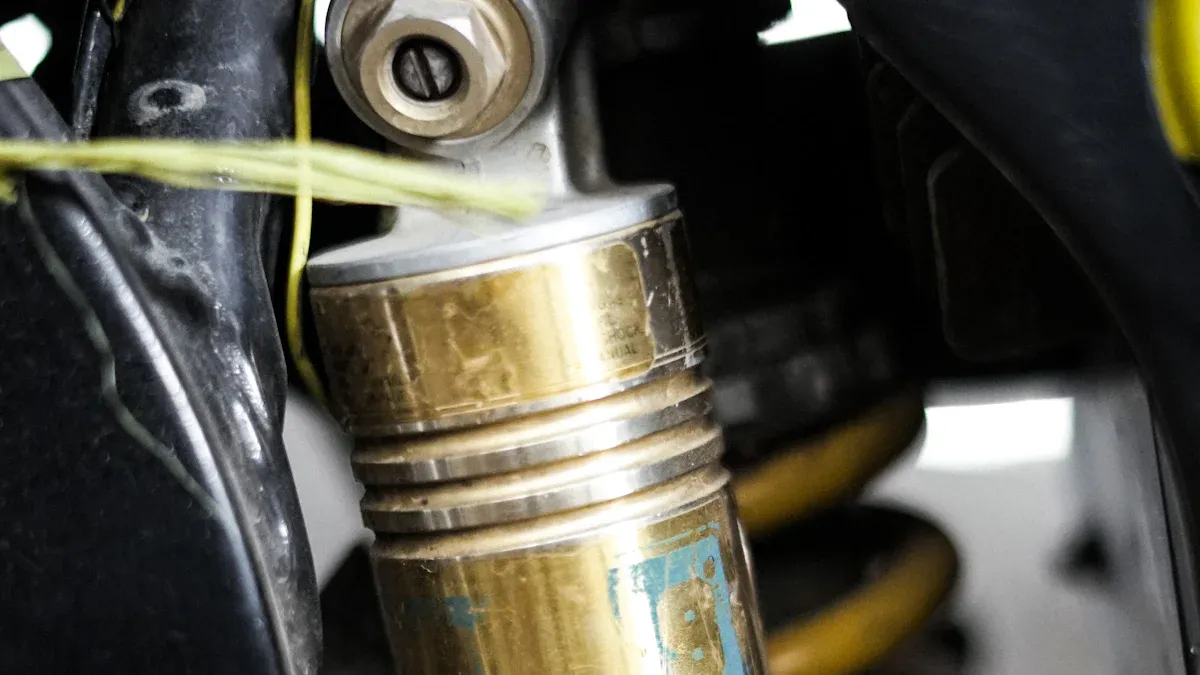
Enhancing Ride Comfort and Stability
Stick-on wheel weights improve ride comfort by reducing vibrations caused by imbalanced wheels. When your wheels rotate unevenly, they create unnecessary shaking that disrupts your driving experience. By redistributing weight evenly, these modern weights ensure smoother rides, whether you’re navigating city streets or cruising on highways.
Balanced wheels also enhance stability, especially during high-speed driving. Uneven forces can make your vehicle feel unstable, increasing the risk of accidents. Stick-on wheel weights counteract these forces, allowing your suspension system to perform optimally. This results in better road safety and a more enjoyable driving experience.
Tip: Regularly check your wheel balance to maintain stability and prevent unnecessary strain on your suspension system.
Improving Fuel Efficiency Through Proper Balance
Properly balanced wheels reduce rolling resistance, which directly improves fuel efficiency. When your tires roll smoothly, your engine doesn’t need to work as hard to maintain speed. This leads to lower fuel consumption and better performance. Stick-on wheel weights play a crucial role in achieving this balance, ensuring your tires make consistent contact with the road.
Here are some documented benefits of using alloy wheel weights for fuel efficiency:
- Balanced wheels reduce rolling resistance, saving fuel during long drives.
- Proper weight distribution minimizes energy loss, allowing your vehicle to operate more efficiently.
- Reduced strain on suspension systems lowers maintenance costs, indirectly contributing to fuel savings.
By maintaining proper balance, you not only save money at the pump but also reduce your vehicle’s environmental impact.
Boosting Vehicle Safety and Handling
Stick-on wheel weights significantly improve safety and handling by ensuring precise weight distribution. Balanced wheels enhance traction, especially during sharp turns or sudden stops. This reduces the likelihood of accidents and keeps you in control of your vehicle.
Research-backed advancements in wheel weight technology further enhance safety and handling:
| Improvement Type | Description |
|---|---|
| Precision Engineering | Advances in manufacturing processes lead to tighter tolerances, ensuring consistent performance. |
| Adhesive Weights | Offer easier installation and reduce damage to alloy wheels, enhancing aesthetic and performance. |
| Digital Balancing Systems | Provide accurate measurements and optimal weight placement, improving vehicle performance and ride quality. |
Stick-on wheel weights also protect your suspension system by minimizing vibrations and uneven tire wear. This ensures smoother rides and better handling, even in challenging driving conditions. Whether you’re navigating wet roads or taking sharp corners, balanced wheels equipped with modern weights keep you safe.
Maintaining and Adjusting Alloy Wheel Weights
Signs of Imbalance and When to Adjust Wheel Weights
Recognizing the signs of wheel imbalance is crucial for maintaining your vehicle’s performance. You may notice vibrations in the steering wheel, uneven tire wear, or a rougher ride than usual. These symptoms often indicate that your wheel weights need adjustment. Ignoring these signs can lead to long-term damage to your tires and suspension system.
Modern vehicles are particularly sensitive to imbalances. Even small weight discrepancies can cause noticeable issues. Regularly inspecting your tires for uneven wear patterns or unusual vibrations can help you identify problems early. If you experience these signs, it’s time to consider proper balancing to restore smooth driving and protect your vehicle’s critical components.
The Importance of Regular Wheel Balancing
Proper wheel balancing is essential for maintaining your vehicle’s safety and efficiency. Over time, normal driving conditions can cause your wheels to lose balance. This imbalance leads to uneven tire wear, reduced fuel efficiency, and unnecessary strain on your suspension system. Regular wheel balancing ensures that your tires rotate evenly, providing a smoother ride and extending their lifespan.
Experts recommend checking your wheel balance every 5,000 to 6,000 miles or whenever you replace or rotate your tires. Modern wheel balancing solutions, such as stick-on wheel weights, offer precise adjustments that keep your vehicle running smoothly. By prioritizing regular maintenance, you can avoid costly repairs and enjoy a safer driving experience.
Professional Maintenance vs. DIY Adjustments
When it comes to adjusting wheel weights, you have two options: professional maintenance or DIY adjustments. Each approach has its pros and cons, as shown below:
| Aspect | DIY Costs | Professional Costs |
|---|---|---|
| Initial Costs | No labor charges, but tool costs may apply | Labor charges for trained technicians |
| Hidden Expenses | Potential costs for tools and repairs | Fees for balancing and alignment checks |
| Long-Term Savings | Risk of uneven wear and frequent replacements | Longer tire lifespan and reduced maintenance costs |
| Warranty Considerations | May void warranty | Maintains warranty coverage |
| Safety | Higher risk of installation errors | Enhanced safety through professional expertise |
DIY adjustments may seem cost-effective initially, but they carry risks. Improper installation can lead to uneven tire wear and safety concerns. Professional maintenance, on the other hand, ensures accurate balancing and protects your vehicle’s warranty. Trained technicians use advanced tools to provide precise adjustments, making it the safer and more reliable choice for modern vehicles.
Tip: If you’re unsure about adjusting wheel weights yourself, consult a professional to ensure proper wheel balancing and avoid potential risks.
Alloy wheel weights play a vital role in keeping your vehicle’s suspension system in top condition. By maintaining proper wheel balance, they help you avoid vibrations that can damage critical components. Balanced wheels also reduce uneven tire wear, which protects your suspension and extends the life of your tires.
Regular maintenance ensures these weights perform effectively. Checking for signs of imbalance and adjusting weights as needed keeps your ride smooth and safe. When you prioritize wheel balancing, you enhance your vehicle’s performance and save money on repairs. Alloy wheel weights are a small investment with big benefits for your car’s health.
Tip: Schedule regular wheel balancing to maximize the lifespan of your suspension and tires.
FAQ
1. How do alloy wheel weights protect my suspension system?
Alloy wheel weights balance your wheels, reducing vibrations that strain your suspension. Balanced wheels distribute forces evenly, preventing premature wear on shocks and struts. This keeps your suspension system functioning efficiently and extends its lifespan.
2. Can I install alloy wheel weights myself?
You can install alloy wheel weights if you have the right tools and knowledge. However, professional installation ensures precise balancing and avoids errors that could lead to uneven tire wear or suspension damage. Consult a technician for optimal results.
3. How often should I check my wheel balance?
Check your wheel balance every 5,000 to 6,000 miles or after replacing or rotating tires. Regular inspections prevent imbalances that cause vibrations, uneven tire wear, and suspension strain. Early detection saves you money on repairs and improves driving comfort.
4. Are stick-on wheel weights safe for alloy rims?
Stick-on wheel weights are safe for alloy rims. They adhere securely without damaging the surface. Their lightweight design ensures precise weight distribution, making them ideal for modern vehicles with sensitive suspension systems.
5. Do balanced wheels improve fuel efficiency?
Balanced wheels reduce rolling resistance, allowing your engine to work less. This improves fuel efficiency and lowers energy consumption. Proper wheel balance also minimizes tire wear, saving you money on fuel and maintenance over time.
